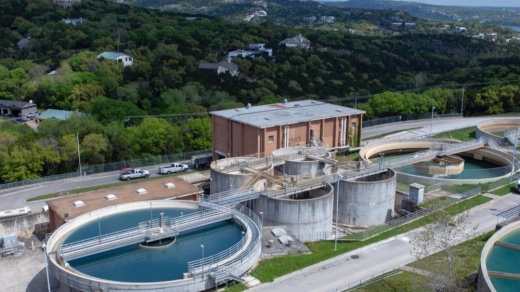At the city’s special waste and wastewater commission meeting July 21, Austin Water staff said the department can support the FY 2022-23 $683.8 million budget on current rates, but it is facing looming budget constraints including inflation and upcoming projects.
“We are proud of that as affordability continues to be an issue for many of our ratepayers,” Austin Water interim Director Robert Goode said.
Under the current fee structure, the average resident pays about $80 a month for water and wastewater services.
Goode said the department is proud to keep the rate the same as other utilities are raising their rates, causing further strain on ratepayers.
Joseph Gonzales, Austin Water financial services assistant director, said the department aims for residents to spend 1.5% of their income or less on water and wastewater services. Currently, rates are at 1.15% of the median household income.
He did not indicate what the new rates could be, but he said he anticipates the city’s median household income will increase at a faster rate than the department’s bills to customers, keeping the utility well below that 1.5% threshold.
The FY 2022-23 budget includes $27.6 million more in spending compared to FY 2021-22, largely due to an increase in operations costs related to inflation.
The department is expecting $608.7 million in revenue, according to Gonzales. The difference between the income and expenditures in the budget will come from the department’s fund balance.
Gonzales said the budget prioritizes resiliency—maintaining and improving the city’s water and wastewater systems—which has been a goal of the department further highlighted by the recent boil-water notice.
One of the largest upcoming projects include a $284 million project at the Walnut Creek Wastewater Treatment Plant.
Goode and Gonzales both said the budget includes additional staff and increasing staff benefits to mirror the city’s overall effort to invest in the retention and recruitment of employees.
Gonzales said the drought and Stage 1 water usage conditions are not likely to cause an impact on the budget. He said residents lowered their water usage during the last Austin drought and have maintained the lower water usage since. He said revenue for this year is up slightly as Austin Water users try to maintain their yards in the record-high heat.





